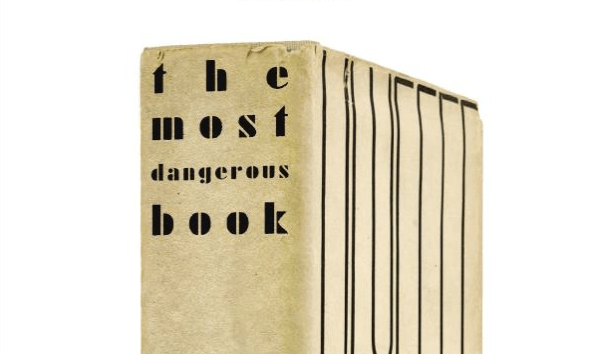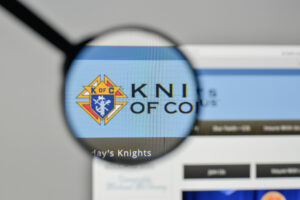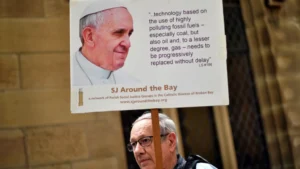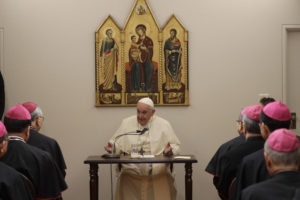The Most Dangerous Book
This "biography of a book" presents James Joyce's "Ulysses" as the work that broke the crusading spirit of the U.S. government's literary censorship during the early 20th century.
“The Most Dangerous Book: The Battle for James Joyce’s ‘Ulysses’ “ A book by Kevin Birmingham
This is, Kevin Birmingham writes, “the biography of a book.” That emphasis is worth bearing in mind. If you’re looking for a general guide to James Joyce’s “Ulysses” to help you gear up for the annual celebrations on June 16 — fondly known as Bloomsday because the action of the novel largely takes place on that date in 1904 — or if you want a full account of Joyce’s life, you probably still should turn to those ancient standbys, Stuart Gilbert’s “James Joyce’s ‘Ulysses’ ” and Richard Ellmann’s biography. “The Most Dangerous Book” is, in fact, mainly about obscenity. Birmingham approaches “Ulysses” as the work that subverted literary censorship and broke the crusading spirit of the U.S. government’s regulation, or, more accurately, suppression of “pornographic” books during the first third of the 20th century.
In most of the ways that matter, Birmingham has produced an excellent work of consolidation, bringing together bits and pieces from scores of previous Joyce-related biographies and studies. He presents a lively history of how Joyce slowly built up the verbal richness and structural complexity of the novel, how the early chapters were serialized in the Little Review and cost its editors, Margaret Anderson and Jane Heap, fines and judicial harassment; what the Paris-based Shakespeare and Company endured to publish the final book in 1922; and why Judge John M. Woolsey came to declare in 1933 that “Ulysses” was not obscene and could be legally printed in the United States.
Until the end of the 20th century, Joyce generally was viewed as a figure inspiring almost religious awe. Espousing the uncompromising individualist’s motto of “Non serviam” — I will not serve — he rejected Ireland, Catholicism, conventional morality and every form of literary and linguistic constraint. His intense suffering from eye disease and his eventual blindness invited comparisons to Homer and Milton. Joyce was, in short, an icon, the saint of modern literature.
That sacerdotal view has altered in recent years. New biographies, particularly Gordon Bowker’s, have removed the halo and revealed a Joyce who was, for all his genius, all too human. As you read Birmingham’s book, you realize that the author of “Ulysses” was a sponge and a fop, feckless and irresponsible about money, prone to drunken binges and embarrassingly crude in his sexual enthusiasms. What’s more, as an artist, the self-exiled Irishman may have been above the fray, indifferent, paring his fingernails, but only because he was able to exploit everyone around him. Joyce was high-maintenance. He could defy censors and critics in the name of Art, but he ruthlessly counted on his foot soldiers to fight his battles for him.
Those devoted friends and acolytes included some of the most colorful figures in 20th-century literature: that impresario of modernism, Ezra Pound, who tirelessly championed Joyce’s early writing; the shrewd New York lawyer and collector John Quinn, who, sometimes reluctantly, defended him; and, not least, the genteel Englishwoman Harriet Weaver, who supported the writer over many years to the tune of almost $2 million (in today’s money). Then, too, there’s everyone’s favorite Joyce, his irrepressible and down-to-earth wife, Nora Barnacle: “I guess the man’s a genius, but what a dirty mind he has, hasn’t he?” When her husband presented the 1,000th copy of “Ulysses” to her at a dinner party, she immediately offered to sell it.
Birmingham’s book is packed with such entertaining factoids. The 1914 short-story collection “Dubliners” — which Penguin has just reissued in a special centennial edition — by mid-1917 had earned “exactly two and a half shillings in royalties.” When, in 1920, Pound first “sauntered” into the Shakespeare and Company bookstore, he “surveyed the premises and asked [Sylvia] Beach if there was anything he could fix for her.” Beach, the store’s proprietor, remembers that Joyce pronounced the title of his book “Oolissays.” Birmingham even cites the novel’s very first review in the London Observer — and it is surprisingly spot on: “ ‘Mr. James Joyce is a man of genius,’ Sisley Huddleston declared. The book was ‘the vilest, according to ordinary standards, in all literature. And yet its very obscenity is somehow beautiful and wrings the soul to pity.’ ”
For all its undoubted merit, “The Most Dangerous Book” tends to be noticeably sensationalistic. Birmingham overtly stage-manages his chapters, often withholding key facts so that he can spring them on the reader with a theatrical flourish. For example, he reveals the cause of Joyce’s eye ailments only near the end of the book, arguing there that his iritis was almost certainly caused by that 19th-century curse, syphilis, probably caught from a prostitute in Dublin’s Nighttown. Nearly every chapter closes with a loud rhetorical bang.
In addition, Birmingham sometimes veers precipitously close to imagining what people must have been thinking. In one instance, he takes us right into the head of Woolsey, the judge, while he shaves, and only an endnote reveals that some of these matutinal thoughts are suppositions. Periodically, the young scholar also makes show-offy, draconian statements, as when he ends a discussion of the famous “Nausicaa” episode — in which a voyeuristic Leopold Bloom observes and is observed by the daydreamy Gerty MacDowell — with a series of weird declarations: “Meanings in ‘Ulysses’ are coy thrills. They are only partially revealed so as to draw people closer. ‘Ulysses’ is difficult because Joyce was lonely. He was sentimental, prone to fantasy as well as rumination, and he beckoned readers onward through teases written into his book inch by inch. If Joyce resembles someone on that beach, it is not Leopold Bloom. Joyce is Gerty.” Despite the oratorical flourish, mere assertion is not proof.
To read “The Most Dangerous Book,” you would never guess that “Ulysses” is essentially comic. “The body,” Birmingham emphasizes, “was central to Joyce’s work because he was a captive of both its erotic pleasures and its intense pains.” So are we all. But when he isn’t quoting Molly Bloom at her filthiest or describing the sado-masochistic fantasies of Bloom in Nighttown, Birmingham relates the horrors of Joyce’s eye operations with the gusto of a first-grader chanting “greasy, grimy gopher guts.” At the same time, he betrays some disheartening scholarly lacunae: John Cowper Powys, author of “Wolf Solent” and other great novels, is described as a “British lecturer.”
Is all this too harsh? Maybe. Birmingham is a recently minted Harvard Ph.D., and he simply could have been youthfully exuberant in transforming a sober dissertation into a somewhat flashy trade title. But I also suspect that “The Most Dangerous Book” could represent a trend: Rising young scholars may be over-correcting for the excesses of recent academese by adopting a supercharged, snazzily cinematic style of writing. To capture and keep the attention of 21st-century readers, more attuned to Twitter than to elegant thinking, literary studies sometimes seem positively histrionic, paced like action films, scripted like stand-up routines.
Still, these are just one older critic’s reactions and speculations. “The Most Dangerous Book” is impressively researched and especially useful for its meticulous accounts of various legal battles. It is meant to be fun to read and, setting aside my fogeyish cavils, it is.
Michael Dirda reviews books for The Washington Post every Thursday.
©2014, Washington Post Book World Service/Washington Post Writers Group
Your support matters…Independent journalism is under threat and overshadowed by heavily funded mainstream media.
You can help level the playing field. Become a member.
Your tax-deductible contribution keeps us digging beneath the headlines to give you thought-provoking, investigative reporting and analysis that unearths what's really happening- without compromise.
Give today to support our courageous, independent journalists.






You need to be a supporter to comment.
There are currently no responses to this article.
Be the first to respond.